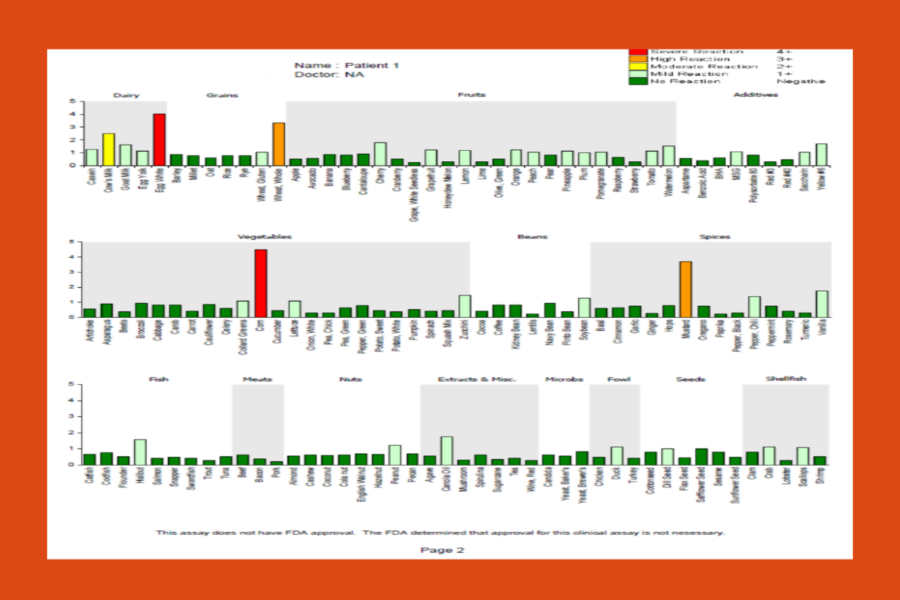Food Inflammation Testing Can Identify Food Intolerances
Do you stay away from certain foods because you know they give you trouble? Is it hard to pinpoint which foods are troubling? It’s hard to identify the problem foods but the Food Inflammation Test, also known as the FIT test, can make it easy.
Bloating, heartburn, nausea, tiredness after eating, constipation, diarrhea – could be signs of a food intolerance but there are other signs to consider as well. Also staying away from some foods doesn’t really get to the root of the problem – more needs to be done to feel your best.
Inflammation is a common factor in many debilitating health issues and diseases like heart disease, diabetes, allergies, asthma, cancer, arthritis, digestive problems, skin conditions and so much more.
Inflammation is the body’s response to stress. Sources of stress come from diet, lifestyle, and the environment. Creating inflammation for an acute condition when catching a cold or flu can be actually beneficial. Health problems occur when inflammation is chronic under the constant strain of mental, emotional and physical stress.
Constant stress exhausts the body’s ability to respond, protect and heal itself. Chronic stress and inflammation has an unbalancing effect and leaves you vulnerable to patterns of rapid aging and chronic health conditions.
Natural and preventive practices in lowering inflammation will not only help you look and feel younger but it will also significantly reduce the risk of chronic disease.
Food is a common source of inflammation. Some people have allergic reactions to foods that quickly appear. Food intolerances, which are different from food allergies, are not well understood. Signs and symptoms of food intolerances can be delayed occurring slowing over several days. What’s worse is you may have food intolerances that may not display any obvious signs at all.
Food intolerances can be a major cause of inflammation and troubling health issues. If food intolerances are misdiagnosed then the results could mean incorrect treatments, unwanted medications and unnecessary surgical procedures.
Here at the clinic we offer a food inflammation test called the FIT test to identify food intolerances and treat chronic inflammatory conditions. The FIT test is used to identify intolerances to 132 foods and food additives.
Treatment depends on the patient’s health needs and presenting signs and symptoms. Inflammation needs to be cleaned up. Acupuncture can help stimulate the body’s natural ability to healing including reducing inflammation and pain.
Often times the immune system, adrenals and the digestion system needs to be supported with herbs and whole food supplements. An elimination diet is a good place to start.
If the tests identify any intolerance then the next step would be to eliminate these foods from your diet to see if symptoms improve. After a period of time these foods can be reintroduced to monitor how well your body tolerates them. For some foods, the body will lose its ability to react and you’ll be able to eat that food without trouble.
Some foods that continue to be a problem will either need to be eliminated for a longer period of time or indefinitely.
After removing any irritants that weaken body function and diminish digestion the treatment focus needs to shift to healing the gut and strengthening body function.
It’s all about finding natural solutions to healing and optimal health.
If you can relate to this article and need help consider taking the FIT test here at the clinic – call – 401-219-6446 or contact us for more info.
Food-Inflammation-Symptoms-Checklist – Check off any problems you experience on this questionnaire. If you have one or more symptoms, you’ll probably benefit from a food sensitivity test.
Foods-and-Additives-Tested – See this link for a list of foods tested with the FIT test.
Common Symptoms with Food Intolerance
- Acne
- Arthritis
- Asthma
- Constipation
- Dermatitis
- Diarrhea
- Eczema
- Fatigue
- GERD
- Hives
- IBS
- Migraines
- Nausea
- Sinusitis
- Stuffy Nose
Food Groups Tested for Food Intolerance
- Additives
- Beans
- Dairy
- Extracts
- Fish
- Fowl
- Fruits
- Grains
- Meats
- Microbial
- Nuts
- Seeds
- Shellfish
- Spices
- Vegetables






